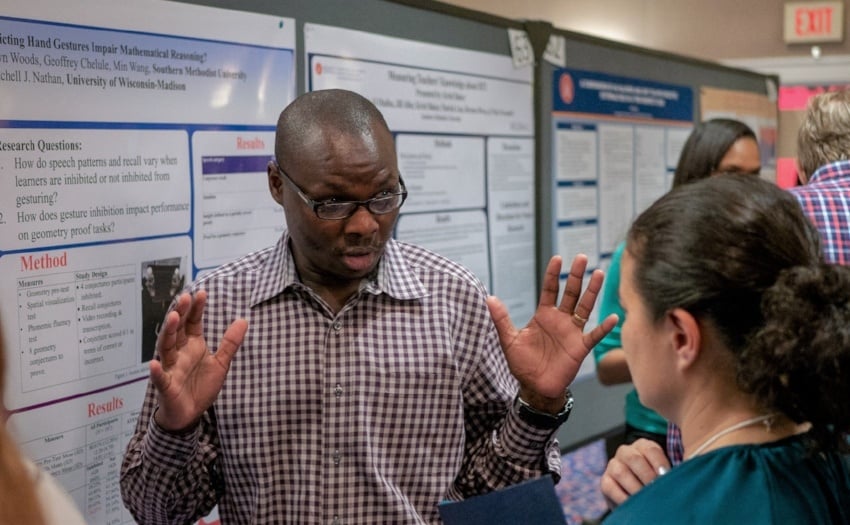
Graduate school helps you become an expert in a small niche in your field. Getting a doctorate and becoming THE person who can talk about the use of personal versus impersonal pronouns in fourteenth century Italian dialects is pretty impressive – but part of being an effective researcher is being able to communicate that specialty to a wider audience. Consider the government official reviewing your grant proposal or the school dean interviewing you for a tenure-track job – odds are that they are not an expert in your field, and if you can’t explain why your research matters, they aren’t likely to offer you funding or a job.
How do you learn to share your research with a non-specialist audience? The best strategy is the simplest – you just have to do it. The more you practice, the easier it will be to find the key words, phrases, stories, and metaphors that can take your esoteric research and make it understandable. As you look to refine your skills, here are some strategies to keep in mind:
Think like a journalist
The adage for reporters is that every story has to have a hook. This holds true for researchers, too. Find the angle that is interesting to a layman and use that to pull them into the story of your work. Have you ever been flipping through the channels and ended up watching a show without meaning to? The program hooked you in – follow that model.
Engage your listeners.
Sharing your story is more about words, especially if you are giving a presentation at a conference or competition. In those situations where the conversation is one-sided, your style has to be as engaging as your substance. Think about strategies such as making eye contact with different people around the room; talking to people instead of reading off of your notes; speaking calmly and confidently rather than rushing through your material; and using positive hand and body gestures to reinforce your words.
Read your audience.
When someone’s eyes glaze over, that is not a signal to go into more detail. Some people will be happy with a one sentence summary of your work, while others will be genuinely interested to know all of the small clues that led to your big breakthrough. Adjust your narrative as you receive feedback (both verbal and non-verbal) from you audience.
Have different versions of your story
If you are an engineer, you would describe your research differently to other engineers (even engineers in different disciplines) than you would to someone who hasn’t had a math class since high school. Think about what is critical to explaining your research, and what details only add depth to those who have advanced knowledge in the area.
Copy what works
Attend presentations and lectures by others and watch with a critical eye. What keeps you engaged? What makes you want to learn more? This can be even more helpful if it’s a discussion outside of your own discipline, so you can observe with an outsider’s perspective. Take the best examples and don’t be afraid to incorporate those methods into your own approach.
Test your elevator pitch on a friend – from a different department
It is so important to have friends who are from different disciplines who can provide feedback as an outsider. Try explaining your research in one minute to a friend who has no idea what you do. If they can’t understand what you described, or if they (accidentally) tune out before you are done, then reevaluate what goes in to your narrative.
Practice!
Take advantage of every opportunity to speak and present, even if you’d be more comfortable hiding in the background. Like most things in life, talking about your research will only get easier if you do it regularly. Just like eating healthy and exercising, these are habits that will help you become stronger, and incorporating them into your regular routine will help prepare you for success.

Your time in graduate school is not just a time to become an expert in your field, it’s also the best time to learn to talk about your work even if your research is in its early stages. When you consciously work on both these elements at the same time, your academic life and your career skills develop in a balanced way. Using these simple strategies and devoting time to practice will help you be comfortable sharing your effort and insight with a larger community of people outside your field.
When your big break comes, you’ll be prepared to tell the whole world what you’ve discovered.
